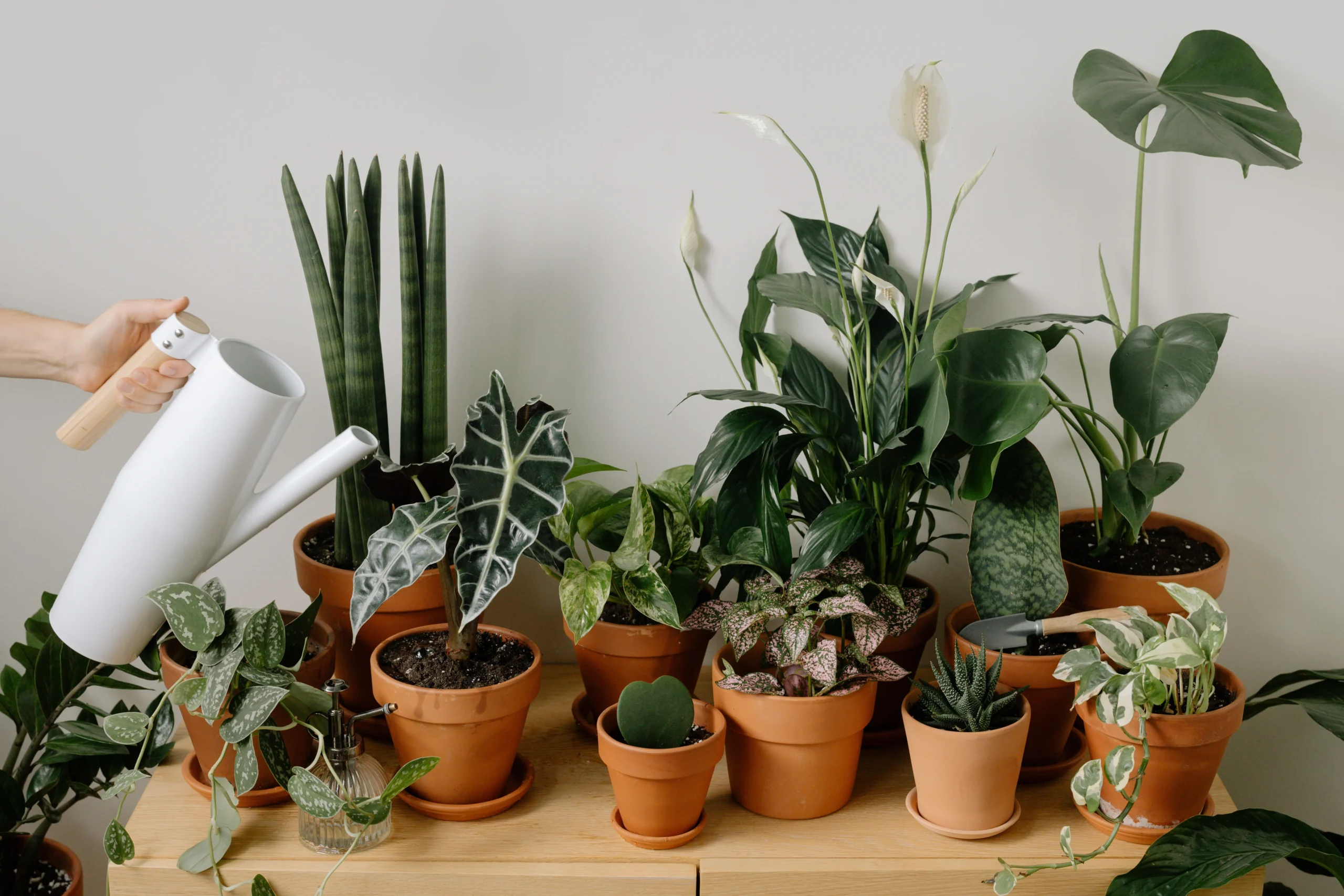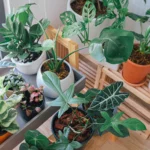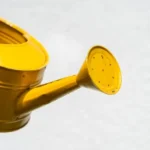If you have ever sought for information on plants, you will know that the majority of sites will advise you that the water that you use to water your plants must be filtered or distilled. But should we truly believe this? You can’t water your plants with water from the faucet, can you? Is there any other method of watering houseplants except utilizing distilled water, and if so, what is it? These are all excellent questions, and we’ll address them in our plant care guide.
Using water from the tap to water your plants is going to be the topic of discussion in this plant care article. We’re going to talk about whether you should use tap water or not. Together, we will address the question, “Can you water houseplants with tap water?”
In this guide on taking care of plants, we are going to discuss the following topics:
- Should you water your houseplants with distilled water?
- Reasons why you should not use tap water
- How can you water your houseplants using tap water?
- Alternatives to using distilled water with houseplants
Let’s find out if you can or can’t water your houseplants with tap water.
Table of Contents
Should you water your houseplants with distilled water?
To get things started, I’ll provide a solution to the following question: Should you water your houseplants with distilled water? To provide your houseplants with water, you should, in the best case scenario, use distilled water. This is the quick answer. However, this does not rule out the possibility of watering your houseplants with tap water.
It is annoying that the majority of advice on how to care for plants insist that you must use distilled water when you water your plants. There are some people who do not have access to or do not want to go to the trouble of using distilled water. The use of distilled water is recommended whenever possible; however, it is not required.
Because of this, we now know that the best option is distilled water; nevertheless, you are not required to use it. Let’s look at the best ways to use tap water when you don’t have any other options. First things first, Here are several reasons not to use tap water. We’ll go through these factors so that you may make an informed decision about what suits you best.
Reasons why you should not use tap water
There are a number of pollutants that may be found in tap water, particularly if it has not been distilled, and these chemicals can be harmful to both you and the plants you grow. The water that comes out of your faucet might have contaminants like lead, chlorine, or even infections. Tap water contains impurities that are hazardous to your plants and can cause issues if you continue to water them with it on a regular basis.
When it comes to issues with plants, other factors besides these chemicals, such as the temperature of the water, can also play a role. If you water your plants with ice cold water, you run the risk of causing harm to the roots of the plants. Cold water at the roots of some (tropical) plants can kill them since they are extremely sensitive to temperature fluctuations.
The good news is that there is an easy approach to triumph over both obstacles at the same time. This is going to be covered in the following part, so stay tuned for that.
How can you water your houseplants using tap water?
We’ve learned that the finest sort of water to use for watering houseplants is distilled water. However, this is not the only choice available to you. It is possible to water your plants with water from the faucet, but doing so will take some advanced preparation on your side. In the event that you intend to utilize water from the tap to water your plants, you should ensure that the water is as clean as possible. In addition to this, you should make sure that the water is not chilly but rather at the same temperature as the surrounding air.
You must let tap water soak for 24 hours before using it on your houseplants. What exactly does this entail? This implies that you will need to figure out when you are going to water the plants at least one day in advance.
If you wish to water your plants tomorrow at 3 o’clock in the afternoon, you need fill up your watering bucket today before that time so that it is ready to go.
You may let the sediment in the water to settle out by leaving the water in the watering can for at least twenty-four hours. When you let it sit for a while, the majority of the particles will make their way to the base of your watering can in a gradual and steady descent. It will also bring your water up to room temperature.
After a period of 24 hours, the temperature of the water will have returned to normal, and it will have settled out. At this point, you may begin watering your plants. You have a far lower risk of exposing your plant to the pollutants in the water at this point. You are also preventing the plant from being exposed to water that is extremely cold.
Do you have any other options for watering your houseplants except distilled water? Absolutely, there are! Let’s discuss these in more detail in the next part.
Alternatives to using distilled water with houseplants
There are still other solutions available to you in the event that you are not yet prepared to water your houseplants with distilled water. Plants may be watered without using distilled water in several ways:
- Rain water
- Water from the tap that has been sitting for at least 24 hours
- Boiling and then cooling tap water
Aside from utilizing tap water, rain water is definitely one of the finest ways to hydrate your houseplants. It is pure, and unlike the water that comes out of your tap, it does not contain any chemicals of any kind. If the rain water is not already at room temperature, the only drawback is that you will have to wait for it to warm up before using it.
You might alternatively bring the water from the faucet to a boil and then allow it to cool to room temperature. This brings the temperature of the water up to the ideal level while also eliminating any microorganisms that may be present. This is a last-ditch effort because the pollutants in the water might still harm your plant.
Conclusion
When it comes to watering your houseplants, you should continue to use distilled water rather than tap water. However, this isn’t the only approach to accomplish this goal. If you are unable to utilize distilled water for all of your plant care needs, there are a few excellent options that you may use instead. You may use water from the faucet as long as you boil it first and then let it sit for 24 hours. Rainwater is another fantastic resource to use; just remember to let it warm up to room temperature before you put it to use.
If you’re not sure how to properly water your plants, you may experiment with a variety of methods until you find one that works for you.
I appreciate you taking the time to read my article. I really hope that this information is of use to you in maintaining the health and beauty of your plants.
Frequently Asked Questions
Should you use distilled water to water your houseplants?
When it comes to watering your houseplants, the finest sort of water to use is water that has been distilled. It does not contain any contaminants and will not put your plants at risk of being harmed by chemicals or diseases. Therefore, if you have the choice, water your houseplants with distilled water rather than tap water.
Can you use tap water to water your houseplants?
You may water your houseplants with tap water if you take certain care. The easiest approach to utilize water from the faucet is to boil it and then allow it to cool down. Another excellent method is to leave it for 24 hours to allow any particles to settle to the bottom of your watering can.
Can you use rainwater to water your houseplants?
The usage of rainwater to water your houseplants is highly recommended. It has a low chemical content and is largely free of dirt and debris. If you must use it, wait until it has reached room temperature before you water your houseplants. This will prevent the plants from being shocked by the cold water.
Photo by cottonbro: https://www.pexels.com/photo/a-green-plants-on-brown-pots-9707239/



